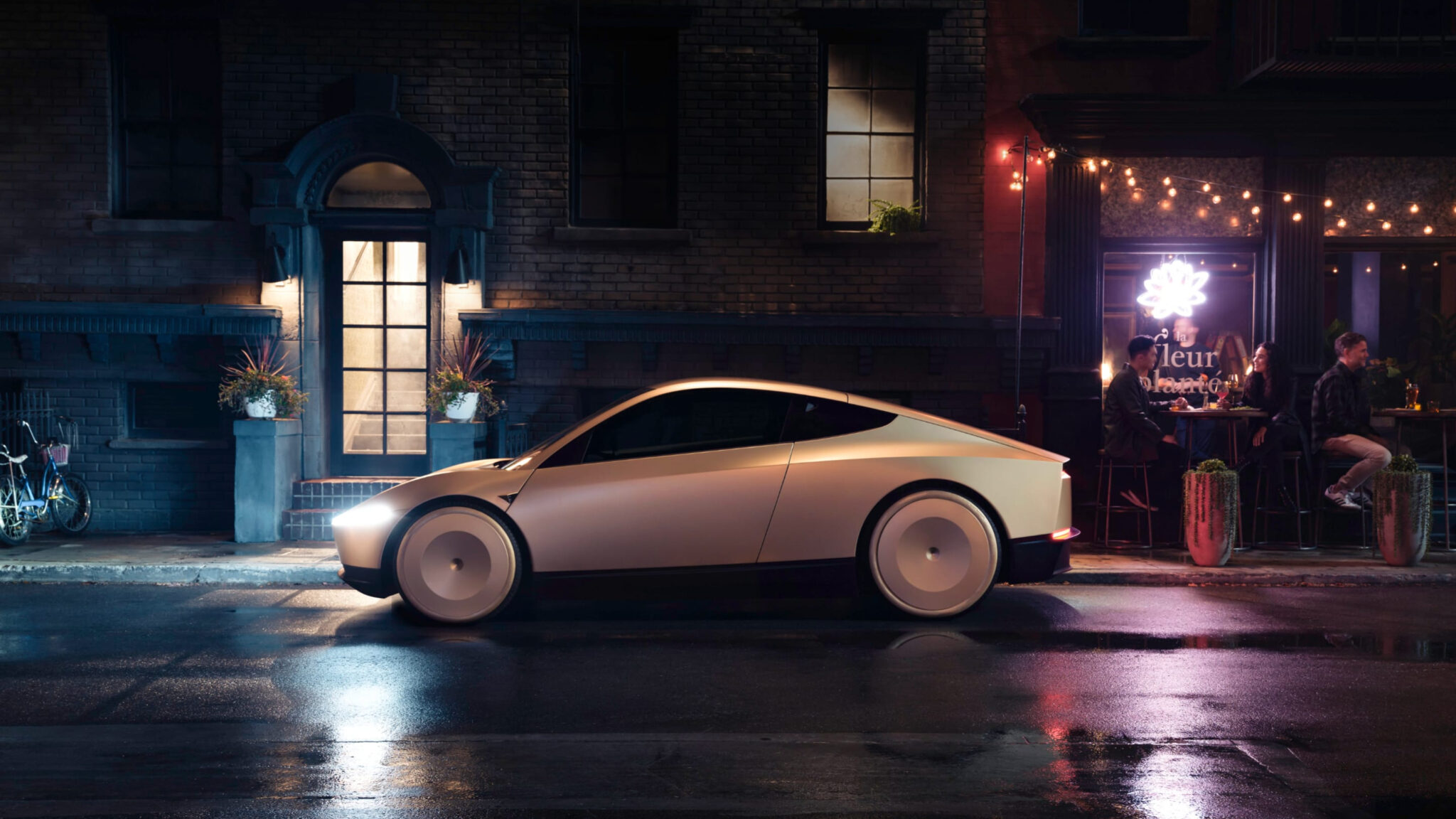Tesla revealed on Thursday night (10) the Cybercab, its robotaxi to compete with Waymo and Cruise. Promised since 2015 by CEO Elon Musk, the Cybercab was at least 9 years in development and has only two seats. The company also presented the Robovan and more details of the Optimus robot — which is proposed to be a do-it-all robot.
Despite Thursday’s presentation, the Cybercab will only go into operation in 2026. Or rather, that’s the promise at the time . Tesla hopes to launch it as a fully autonomous vehicle, so much so that it doesn’t even have a steering wheel or pedals. To do so, the company will depend on several approvals — and given the cases of Waymo and Cruise , 2026 seems like a bold bet.
Cybercab is presented at Warner studio
Tesla’s robotaxi was unveiled at Warner Bros. Studios in Burbank, California (the one with the famous water tower where the Animaniacs live). The location was chosen because it is an enclosed space with several roads. This way, Tesla could demonstrate the Cybercab’s autonomous driving without having to rely on any authorization for testing.
However, according to The Verge, Tesla employees mapped out the studio in the days leading up to the presentation. Given that the announcement event took place at night, a time when self-driving cars are less safe, it’s likely that the company did map out possible routes. There’s another reason for choosing the time: You hide more details about the car.
The car’s look is futuristic, taking design elements from the Cybertruck and having doors that open diagonally — similar to Lamborghini’s supercars. This type of opening can be problematic in urban environments and high-intensity traffic, since in a tighter space there is no way to control the opening. The door is automatic and has no handle.
Lower cost than a bus? With two seats?

At the event, CEO Elon Musk said the cost of a robotaxi is 20 cents per mile (1.6 km), compared to $1 per mile for buses. The problem is that the comparison should be made with competitors Waymo and Cruise, which carry up to 4 passengers (the driver’s seat cannot be used) and are electric.
However, Tesla has surprisingly announced the Robovan. With a capacity for 14 seats (the photos show 14 seats), this product is close to other autonomous bus and van concepts. In fact, Waymo is developing the Origin, a smaller van with six seats.
Robovan, as Musk explained, will not be an alternative to public transportation. The idea is to transport a large group of people together. The example given is of a sports team needing to go somewhere (but I can only think of getting friends together to go to a party). Another proposal is to use it for cargo transportation.
Optimus robot delivers gifts and dances
Another surprise at the event was the presence of several Optimus, Tesla’s handyman robot. The company announced that it will sell two versions of Optimus in the future: one for $20,000 and another for $30,000. According to Tesla’s CEO, the robot will be a helper in people’s lives, capable of mowing the lawn, taking the dog for a walk and babysitting the children.
At the event, Musk said that the robots would serve drinks to guests. However, according to reports from those present, they only handed out a small gift bag. Some of the robots danced in a gazebo.
